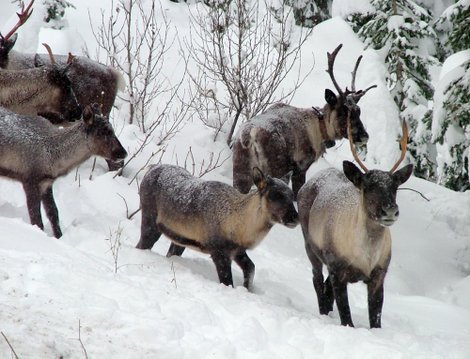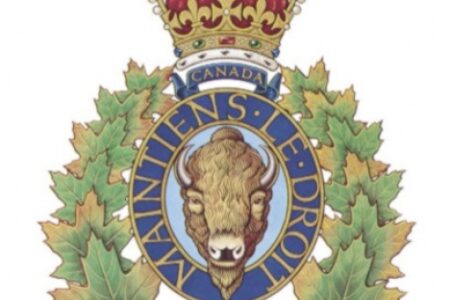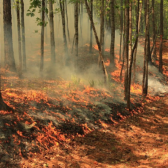Government schedules wolf kill program to save endangered caribou
The Ministry of Forests, Lands and Natural Resource Operations is taking immediate action to save caribou herds under threat from wolf predation in two separate and targeted actions: one in the South Selkirk Mountains and the other in the South Peace.
The South Selkirk herd is at high risk of local extinction. The population has declined from 46 caribou in 2009 to 27 in 2012, and to 18 as of March 2014. Evidence points to wolves being the leading cause of mortality.
The wolves will be shot from helicopters in two specific areas of B.C. — the South Selkirk Mountains and the South Peace.
The South Selkirk is a trans-boundary herd, and caribou move freely between B.C., Washington and Idaho.
Officials from B.C., Washington and Idaho States, First Nations, the U.S. Forest Service and the U.S. Fish and Wildlife Service have been working together on a research project and have collared six of the remaining 18 caribou to help investigate the cause of decline. Wolves have killed two of the remaining caribou (11% of the herd) in the past 10 months.
Ministry staff will aim to remove up to 24 wolves by shooting them from a helicopter before snow melt.
In four caribou herds in the South Peace (Quintette, Moberly, Scott and Kennedy-Siding), populations are also decreasing and wolves are a key factor. At least 37% of all adult mortalities have been documented as wolf predation.
Working in partnership with Treaty 8 First Nations, the ministry’s goal is to remove up to 120-160 wolves in the South Peace, again by shooting them from a helicopter before snow melt.
Caribou populations in a larger South Peace herd (Graham) will be monitored, but receive no predator control measures, in order to allow for comparison on the effectiveness of the program.
Hunting and trapping of wolves have not effectively reduced populations and may even split up packs and increase predation rates on caribou. Habitat recovery continues to be an important part of caribou recovery, but cannot address the critical needs of these herds in the short term.
The operational plans for both the Selkirks and South Peace have been independently peer-reviewed.
Mountain Caribou Recovery Implementation Plan
In October 2007, the provincial government endorsed the Mountain Caribou Recovery Implementation Plan.
Included among the Province’s commitments to Mountain Caribou recovery implementation:
- Protecting 2.2 million hectares, including 95% of high-suitability Mountain Caribou habitat, from logging and road building.
- Managing recreation to reduce human disturbance in Mountain Caribou habitat.
- Managing predator and their primary prey populations to reduce predator densities in areas where predation is preventing Mountain Caribou recovery.
- Increasing caribou subpopulations by transplanting animals from large to small herd areas.
- Undertaking maternal penning projects to increase calf survival in endangered herds.
- Ensuring that all components of management proceed through a monitoring-based adaptive management framework.
- Instituting a cross-sector progress board in spring 2008 to monitor the effectiveness of recovery efforts.
For the South Selkirk herd, a significant portion of core caribou habitat has been closed to snowmobile use and almost all core caribou habitat has been protected from logging and road building.
In July 2008, the Nature Conservancy of Canada purchased 550 square kilometres of land in the region specifically for conservation purposes.



























